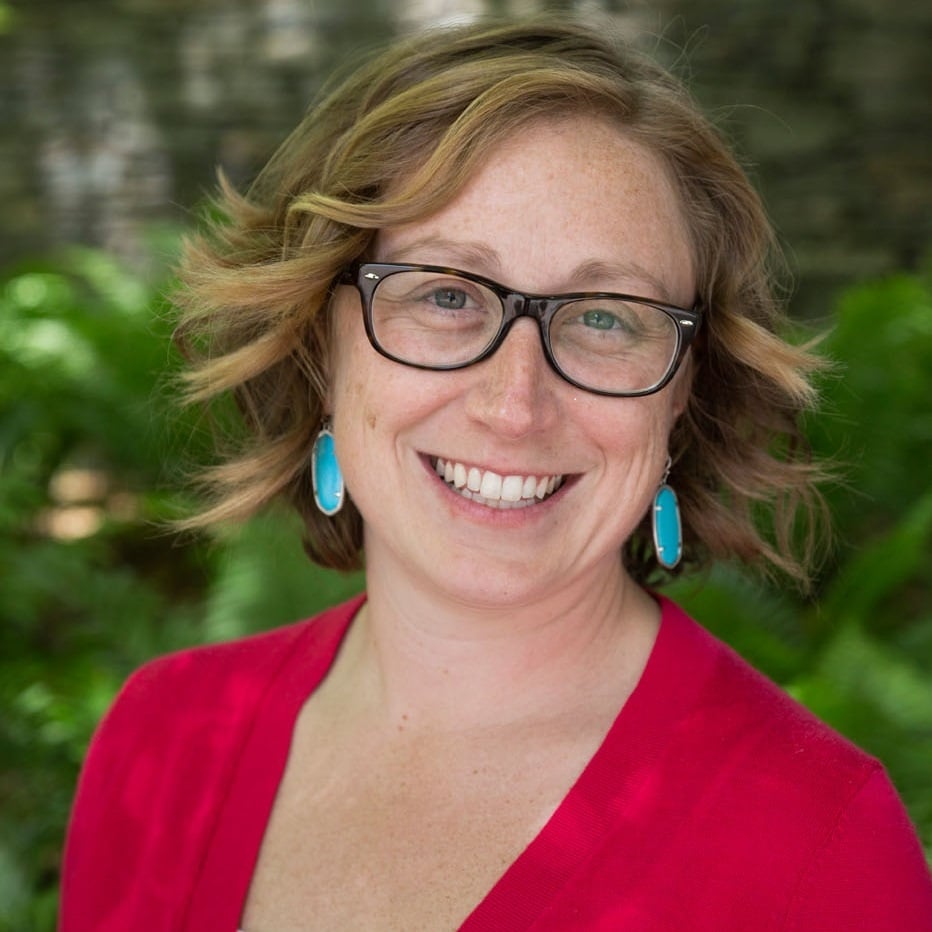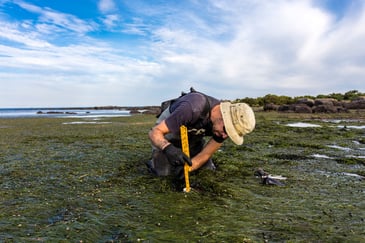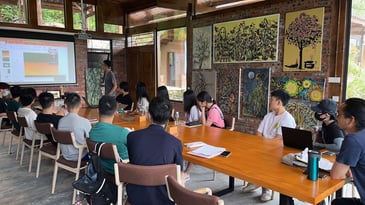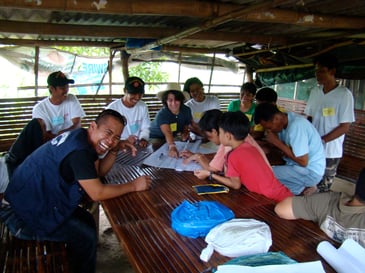Education for Leadership and Career Success: An Interview with CEP Graduate Chris Lavallee
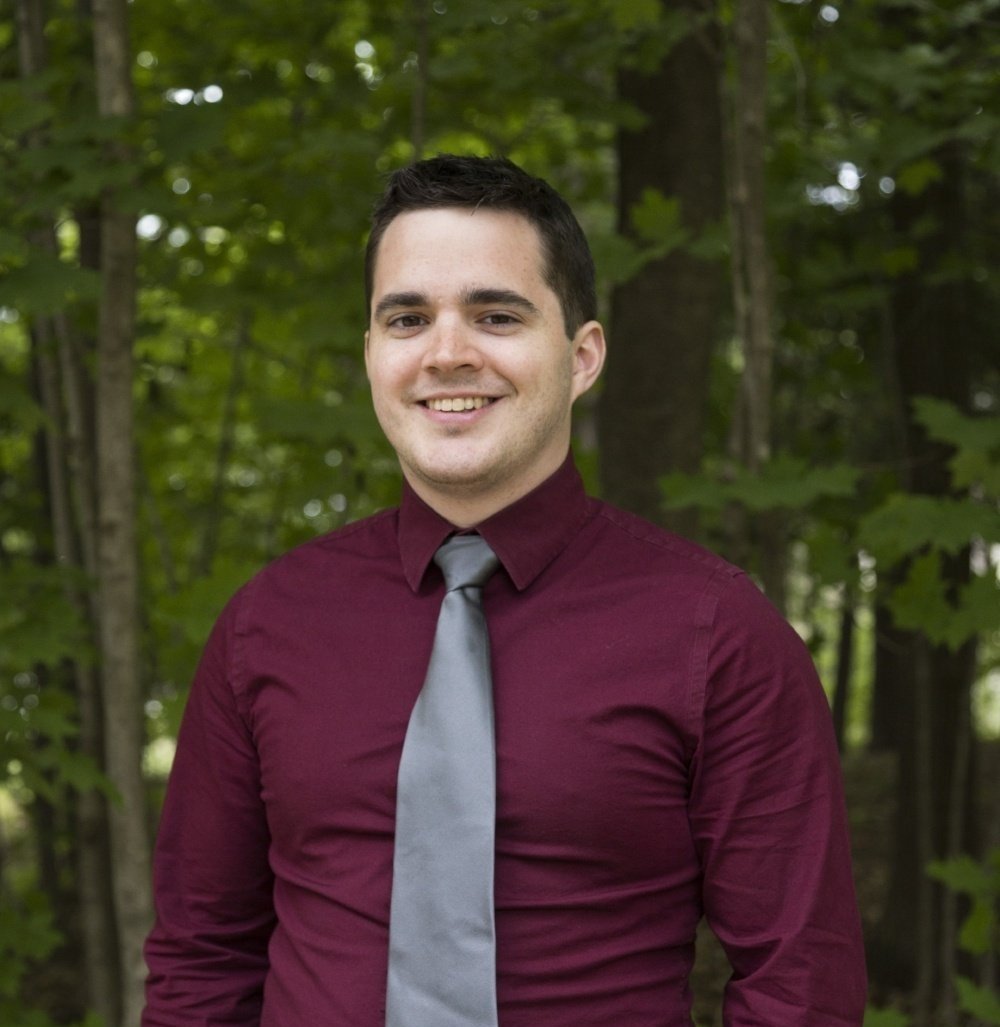
This week, we are delighted to introduce you to Chris Lavallee, a graduate from Bard's Center from Environmental Policy.
Chris talks about why he chose the Bard program, his experiences learning how to communicate and lead on sustainability topics, and how his internship experiences through the Bard program set him up for career success down the road.
Upon graduation from Bard's MS program, Chris leveraged his classroom learnings, capstone thesis, and internship experience to gain a job with the international consulting firm, ICF, based in Fairfax, VA. There Chris works as a consultant on two major federal energy efficiency programs.
Check out the full interview with Chris below.
1. Tell me a little bit about yourself. Where are you from, what did you study in undergrad, and how did you become interested in sustainability?
I grew up in Milton, Vermont, just outside of Burlington. Food, water, and electricity flow from rural Milton into Burlington, making me keenly aware of the economic and environmental impacts of rural-urban relationships. I took my interests in this topic to Saint Michael’s College where I studied Sociology and Environmental Studies (I was part of the inaugural class of environmental studies majors there and I helped provide feedback as the new major was being developed). I also studied abroad in Copenhagen, Denmark where I saw what a truly sustainable metropolitan city could look like. I wanted to take this knowledge and vision into my career helping cities and states across the country reduce their energy consumption.
2. What drew you to Bard’s CEP programs? What was the focus of your capstone?
I was drawn to Bard for its interdisciplinary curriculum and for its full-time internship component. My lack of internship experiences left me ill-prepared for the job market in the field of environmental policy. Most entry-level positions and internships in Vermont in this field were going to Vermont Law School students, so I knew that I would need to both leave Vermont and gain work experience in order to get a job in sustainability. Bard’s internship component was very attractive to me as I would be able to work and make money while in school and add valuable experience to my sparse resume.
I interned with the New York State Energy Research and Development Authority (NYSERDA) which became the launch pad of my career. While there, I helped develop a new $30 million program for the state called RetrofitNY. I wrote my thesis on the concept behind this program that looked to transform multifamily building retrofits into something that could be done at greater scale and for lower cost.
3. What was your favorite thing about your Bard experience?
I really enjoyed the relationships I made with my classmates. Small class sizes help you to form close bonds as you work together on group assignments and share in your success with your internships. I was also glad to be able to continue working at NYSERDA for a full year during the second year of school. The flexibility of the second year enables students to work close to full-time while working on their thesis, which allowed me to continue to gain work experience and expand my role at NYSERDA over time.
4. Tell me a little bit about the Bard approach to teaching leadership. How did you see your personal leadership abilities grow during your graduate years?
Bard emphasizes sustainable leadership training, encouraging students to develop the tools necessary to become a successful leader. The first year emphasizes presentation skills including public speaking and fully engaging an audience through a variety of exercises that are applied across the curriculum. The second year goes a step further and includes lessons in negotiation and networking with powerful people. These exercises often took us out of our comfort zone but proved to be valuable learning experiences that helped us to develop the tools to become strong leaders.
5. What’s it like to attend a C2C workshop? What is the most valuable part of one of these weekend experiences?
The Bard C2C workshop has a fast-paced series of exercises that teach public speaking and quick thinking related to solving environmental problems. The emphasis is on developing strong communications skills in order to discuss the importance of environmental issues and the possible solutions. During the weekend, fellows learn how to go beyond small-talk to create meaningful connections with people, which is perhaps the most important lesson from the experience. Breaking down these social barriers to connect with people is a vital step in developing strong interpersonal leadership skills.
5. Do you have any advice for people who are just getting involved in sustainable efforts?
My top piece of advice would be to do an extended internship or entry-level job with an organization that is well-known within your chosen industry. I went to an undergraduate school that few people have heard of, which I’ve realized has hurt me when networking or applying to jobs. Professional conversations flow much more smoothly when I talk about my experiences at NYSERDA and at ICF than when I bring up the small non-profit I worked at in Vermont or my experience at my undergraduate school. When I was applying for jobs two years ago, I got a lot of calls back from organizations who worked with NYSERDA in some capacity. Simply having that organization on my resume prompted recruiters to reach out to me and continues to be a strong talking point as I network three years later.
6. Who are some of your professional or personal heroes?
Van Jones is a powerful speaker and has a great vision to improve sustainable development in the U.S. His book, The Green Collar Economy, gave a powerful argument for creating jobs in renewable energy to address economic, social, and environmental justice.
My aunt, Molly Lambert, is another professional (and personal) hero of mine. She has a long career promoting sustainable economic development in Vermont (serving as Secretary of Commerce in the early 2000’s). She has a way of speaking with people that makes them feel valued and listened to no matter who they are. She is living proof that one can have a successful career in politics by being kind and courteous and allowing everyone to have a voice rather than only seeking out strategic relationships with the “right” people.
Loic Chappoz of NYSERDA is another person I looked up to professionally. He served as my mentor while at NYSERDA and had this incredible ability to get along well with everyone and to develop strong relationships that I think have been the foundation of his success. He was a great role model for me to follow as my career aspirations align closely with the work he is doing. He also pushed me to further develop my own professional abilities.
7. What project/experience/learning moment are you most proud of from your years at Bard?
By far the most rewarding experience was presenting my Master’s thesis. Not only was I proud to display my hard work and to discuss the potential of a project that I was truly passionate about, but my parents were in attendance. Neither of my parents hold bachelor’s degrees and neither of them had much of an idea of what I actually did for work. They both grew up in rural Vermont and I’m sure had never given much thought to environmental problems in New York City. But after I gave my presentation, they both seemed to have a firm grasp of my work and why it was so important to me. Getting people to care about an issue they had never given any thought to before was a tremendously powerful experience for me and sharing my passion with my parents in that way helped me to open a door to something outside of their own experiences.
8. What sustainability challenge gets you most fired up and inspired to work for change?
There is so much energy being wasted in our homes, businesses, and public buildings and the technologies to reduce this waste not only exist but are affordable and could save a lot of money. So often communications and messaging are the key to solving this issue as the technologies to reduce energy waste already exist and are more affordable than many realize. My strongest skill set I learned in my time at Bard is how to communicate complicated information to a “non-expert” audience in a way that helps them to not only understand the issue, but to also care about it. That is the most important skill I have brought into the workforce.
9. What are your career plans and aspirations?
I would like to continue on my current path helping to expand energy conservation and efficiency efforts across the country. I could see myself working for a city or for a specific utility as an energy efficiency program manager or specialist. My desire is to expand my knowledge of various market transformation strategies in the energy conservation field in order to inform efforts to reduce energy consumption in the building sector at a much larger scale.

